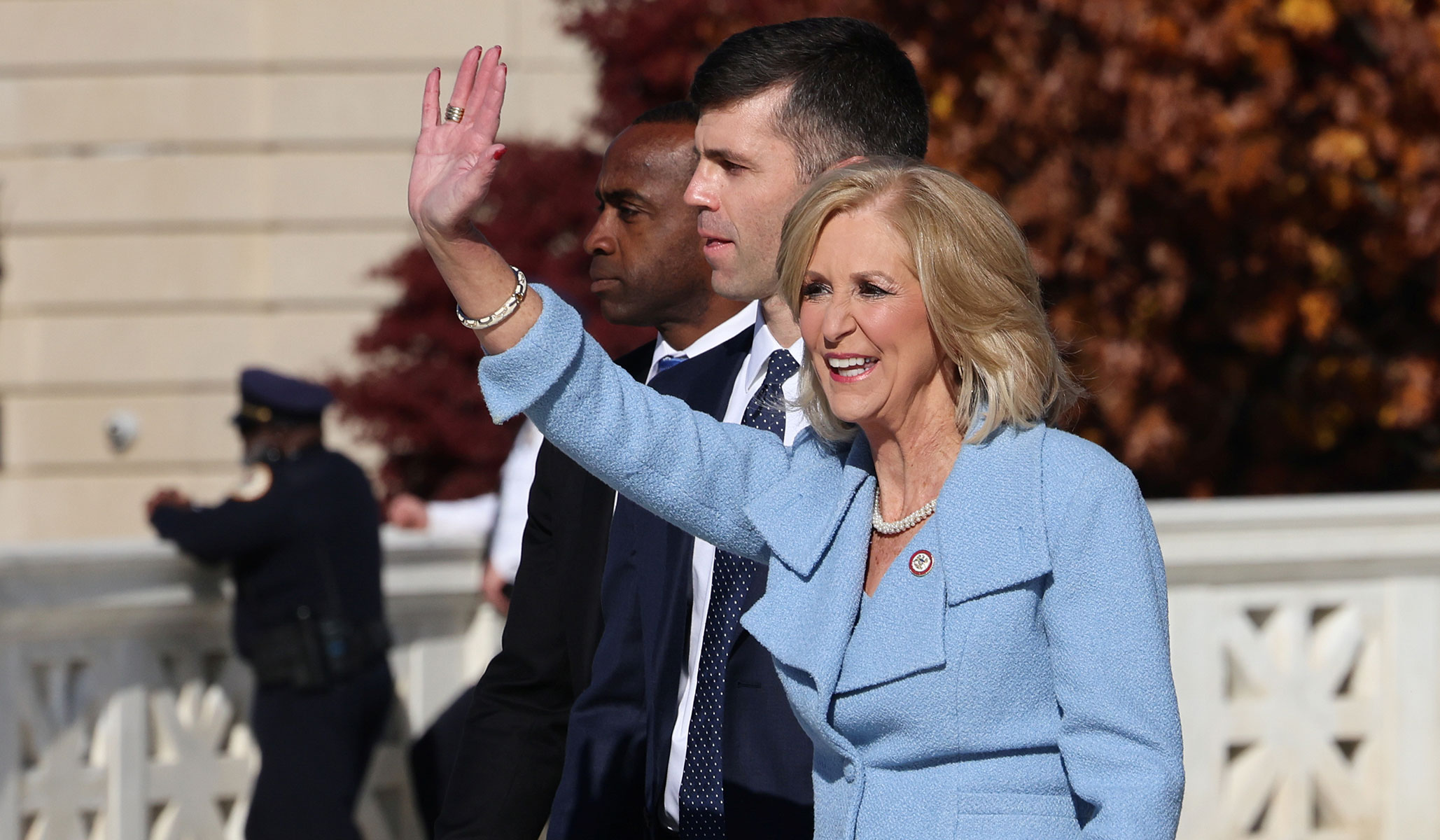


NRPLUS MEMBER ARTICLE ‘M y cousin has twins. She got pregnant again. Her boyfriend is a gang member. She had an abortion. How can anyone say she should have had the baby?”
The question came after a talk I was giving at a Christian college, on life after Roe v. Wade. The student was opposed to abortion but struggling with the reality of the complications of life. Her question was more important than anything I’m sure I told them. Her question should be a challenge to anyone who has ever had a word to say about abortion in a political context.
The Heritage Foundation is celebrating its 50th anniversary. Their headline speakers were mostly politicians — potential presidential candidates such as Ron DeSantis — and media. But I want everyone in the country to hear Lynn Fitch’s speech. She’s the attorney general of Mississippi, and she talked about life after the case she brought to the Supreme Court, Dobbs v. Jackson Women’s Health Organization, asking the justices to overturn Roe v. Wade. Now we are at time of new opportunity.
Including for that student’s cousin with the gang-member boyfriend.
From the moment Fitch had national attention for the Court case, she was consistent and insistent: A country without Roe is a country that can both empower women and promote life. “It doesn’t have to be either or,” she said at the Heritage event.
When I’m in Washington, D.C., I sometimes go with a friend whose parish is a Catholic church in Anacostia. I’m told on the way there that we pass one of the most dangerous streets in all the United States, because of gun violence. Regularly you will see a makeshift memorial to someone who has just been murdered. For the children there, the Catholic school, St. Thomas More Academy, is a lifesaver. It’s what makes it possible for them to not feel that they have to make the choices they have seen people fall into before them — drugs and violence.
And violence includes abortion.
During her Heritage Foundation speech, Fitch talked about the tremendous opportunity we have had since the end of June last year to “match out compassion with laws” that will help “wrap our love and support around mothers-to-be, young mothers, and children.”
It’s, of course, about so much more than laws. But the law is not only a teacher. It can also be a help in removing obstacles.
Mississippi has been focusing on the development of an “empowerment project” prioritizing “workplace flexibility,” enhancing child support, making “quality child care affordable and accessible,” and fixing “the broken foster-care and adoption systems.” Children need to be in families as soon as possible. Forever. And the older ones, not just the adorable ones. And what does empowering women look like? Resources. The kind of work I see people at pregnancy-care centers doing every day. Job skills. Education. Help in filling out difficult government forms. “That’s on all of us,” Fitch said to the room of conservatives. “And we can do it.” The Mississippi legislature recently passed tax credits and a foster-parent bill of rights and established an app connecting mothers with resources, in addition to other assistance for women, children, and families.
Just after the Dobbs decision, I was running a meeting about resources in New York and was sitting across from Mother Mary Agnes Donovan, the superior at the Sisters of Life, who dedicate their lives to God and to helping make life possible for women who are otherwise abortion-minded. I asked her what the women the Sisters work with need the most. I was probably expecting some kind of paradigm for revolution. Her answer instead was “friendship.” They feel alone. They feel enslaved. They feel as if there is no other choice.
Is the answer to that cousin to have to stay with the gang-member boyfriend? Or could it be making sure she knows there are ways out of the toxicity? And abortion wasn’t the way out. She remains.
In her remarks, Fitch was confident that everyone in the room remembered where they were when the Supreme Court issued the Dobbs decision. I’ve heard some say it was a little anticlimactic because of the leak that had many of us reading the gist of the decision that Justice Samuel Alito had drafted in advance. But, no. As Fitch says, “life truly changed for all of us on that day.” And beyond some of the dishonest histrionics, it did provide “a new pathway” for how we look at our young women and their sometimes desperate challenges.
Fitch herself, as a single mother after a divorce, raised children. She doesn’t sugarcoat what that looks like. One of the worst things we can do as Americans is talk about these life issues as if they were easy. Life never is. That’s why we are meant to live in community and love our neighbor and create policies that don’t make it all more difficult.
Fitch’s was a call to tenderness. That’s not the caricature of a conservative. If you’re not one, know that some of us want to work with you to actually help women. What do you say? And for the love of that cousin who felt that she had to have an abortion, and for everyone who has ever felt that and who is now feeling that she has no choice?
This column is based on one available through Andrews McMeel Universal’s Newspaper Enterprise Association.
